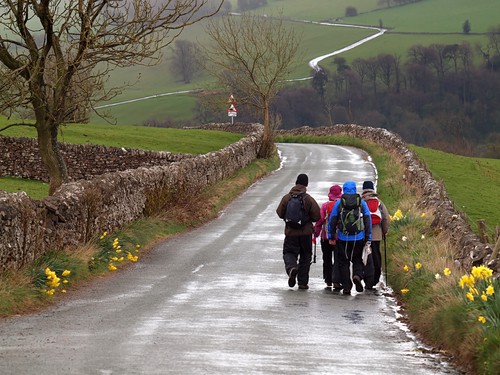Walking reduces stress. Did you know that the simple act of going for a quick walk is one of the best stress-busters? Incredibly, mindful walking is something that anyone can do and help you reduce your stress level.
Not convinced that going for a brisk walk is something you should try? Let’s look at why this gentle form of physical activity makes you feel better and how walking can reduce stress and anxiety symptoms.
Why Walking Is Good For Stress Relief
Walking is a great stress relief activity that you can undertake. It does not matter if it is walking in the park or your dog; walking is a great stress reliever. But it is essential to understand that walking will help reduce stress and help you with stress relief.
Studies have shown that aerobic exercise is an effective way to reduce the feeling of stress. This is because a walk helps you to burn energy, which you store in your muscles. This allows your body to cope better with stress by utilizing energy reserves.
Regular exercise helps the heart and lungs work better. Walking helps in improving the overall health of your body.
One of the reasons why physical activity is good for relieving stress is that it works on the central nervous system.
If your brain becomes stressed, it releases chemicals that cause your breathing and heartbeat rate to increase. This leads to increased blood pressure and increased oxygen levels in the body. Exercise helps to reduce the levels of the chemicals that are released. In addition, exercise helps reduce the stress hormones in the brain and helps clear your mind.
The cardiovascular system is another area affected by feelings of chronic stress. As you exercise, you increase your heart rate, increasing the amount of oxygen in your body. This helps clear out your arteries and oxygenates your blood. As a result, by walking, you reduce stress, and it is a great activity that helps your breathing and improves your overall state of health.
Many people suffer from chronic diseases such as diabetes or heart disease. They do not realize their bodies need exercise. As you exercise, you raise your HDL cholesterol level. Which helps protect the body from increasing LDL cholesterol levels. Exercising will lower your risk for heart disease and other chronic conditions.
A significant part of brisk walking is that it is fun to do. In addition to having many physical benefits, regular walks can help your mental health. Walking is a form of meditation. You get great exercise, but you have time to think about the things troubling you. This is important if you are dealing with stress and health issues.
Regular walking is good for your bones and joints. Going for a walk is a great exercise that helps build your bones and muscles. It helps improve your immune system and is a great way to prevent osteoporosis. Your bones and muscles will become stronger over time as you exercise.
Exercise is beneficial to your mental and physical health. The amount of stress that your life is experiencing will affect your health and quality of living. By getting daily exercise, you will be reducing your stress and tension. Going for a walk is a great way to get this daily exercise and is so easy to do.
If you are a smoker, stopping smoking will significantly affect your life. Smoking has many adverse effects on your body and affects your breathing. By walking each day, you are taking steps to help you quit. You will be putting the cigarettes to the back of your mind.
If you like swimming, walking can provide you with another form of exercise. Many people who swim incorporate walking into their daily exercise routine. As you walk through a pool or a lake, you are invigorating the water as you work out your legs. This can help you to both lose weight and to feel great. By going for walks, you reduce the stress hormone cortisol and help to burn calories, and strengthen your heart health.
These are a few reasons that walking can benefit you in many ways. If you start to walk, you are changing your life for the better. Stress levels tend to increase after certain events in our daily lives. Don’t worry about your next meal. Focus on regular walks and getting healthy. Go for a walk to reduce your stress levels, improves your health, is good for weight loss, encourages deep breathing, and gives you more energy throughout the day.
Whether you walk to relax, get some exercise, or help manage stress, walking is a great way to meet your daily needs. The mental health benefits of walking are tremendous. If you have lacked physical activities, look at walking to change your life. It is easy to understand many people take up walking as a hobby or part of their daily routine.

Walking Boosts Endorphins
One of the first things you’ll notice if you go out for a brisk walk is that you will feel better. As you move and exercise, your body releases endorphins, known as feel-good hormones. They make you feel happier, healthier, and less stressed. You will be in a better mood and with lots of extra energy to boot. Endorphins have been shown to help reduce pain and anxiety levels and help with mild depression.
Endorphins act as analgesics. This means they lessen the perception of pain. Endorphins behave like sedatives. You create endorphins in your brain, spinal cord, and many other body areas. Your brain releases endorphins in response to brain chemicals called neurotransmitters. The neuron receptors endorphins bind to are the same ones that bind some pain medicines.
Taking regular walks helps to reduce stress by activating the parasympathetic nervous system and endorphins. The parasympathetic nervous system is a system that allows the body to relax, while endorphins are a type of hormone that is released in the brain and other parts of the body. So yes, walking reduces stress.
Being Outside Is Great For Busting Stress
The simple fact of being in the fresh air makes you feel better. Part of it is that your body produces vitamin D in the sunshine. This essential vitamin has been linked to stress management. It takes extra vitamin D to make it through stressful times unharmed. Make sure that you soak up the sun.
The sunshine isn’t the only thing that helps you bust through stress. The improved air quality and the added oxygen of being outdoors are beneficial. Being in a forest, a park, the beach, or other natural settings has a relaxing effect. The Japanese call it forests bathing, and it has been proven to reduce your blood pressure and help you calm down. Want to outsmart stress? Get outside more.

Why Walking Reduces Stress
Walking is one of the simplest forms of exercise. Walking 30 minutes a day, five days a week, can improve your health. People often remark that they feel better after a walk or just going outside.
Walking is an inexpensive, low-risk, and accessible form of exercise. Walking will lower stress by decreasing cortisol levels in the blood.
Walking beats other forms of exercise because there are great strategies for boosting the amount of walking that you do.
For example, you can get off your bus at an earlier stop than usual, which will allow walking for an extra two to three minutes. It sounds small, but you will build up your distance over time.
Another tip is to start walking up a flight of stairs. Do not take the lift all the time. Try walking and not driving. You will find that walking is a good stress reducer and a great exercise program.
Group Walking To Reduce Stress
People experience stressful life events. Like severe illness, the death of someone they loved, marital separation, or unemployment. Research shows a boost in mood after they took part in outside group walks. Group walking reduces stress and helps you feel more connected to other people.
Experts said walking in natural settings like woodlands or mountains may be beneficial. Due to a theory that suggests people concentrate after spending time in nature. Walking in a natural environment reduces stress and makes you feel calmer, and increases your blood flow.
Gentle Exercise Will Help You Sleep Better
I don’t have to tell you that not getting good sleep doesn’t improve anything stress-related. We cannot cope with everything that life throws at us if we don’t get adequate rest. Improving the quality and quantity of sleep is an essential step in stress reduction. Sleep helps our overall focus, performance, mood, and quality of life. Walking lowers stress and allows you to sleep better.

Walking Helps Calm The Brain
We usually think of physical symptoms, like stress-related headaches, stomachaches, and muscle tension when we think of stress. That is a reasonably accurate description, but it does not account for mental stress and mental wellbeing. One way to improve mental health is to do physical exercise. Walking is a great breathing exercise to help calm the brain, and walking will help you feel less stressed. But how do you exercise when you are high-strung and anxious?
Going for a walk (or any regular physical activity) will help relax your body and get you ready for sleep. You find that falling asleep and staying asleep throughout the night becomes more manageable with regular exercise.
Summary
Walking is exercise. It helps reduce stress puts your body in motion, and increases circulation. Walking causes your brain to release more endorphins, which allow you to feel happier and more relaxed. Plus, walking is just plain fun.
Recent studies have shown that walking is an effective way to reduce stress and anxiety. While walking, you focus your thoughts on the beautiful scenery around you. As a result, you feel more relaxed and less stressed.
Walking is a low-impact exercise, and you can walk at any time of day or night at your own pace. You can go hiking without worrying about physical damage, which might happen with more vigorous forms of exercise. If you are overweight or elderly, walking is an excellent physical activity. Walking is also suitable for you if you have not exercised for a long time.
As a bonus, that quick walk will give you a quick boost of energy that may be what you need to deal with your busy day – without adding to your stress load. You know that walking reduces stress, what are you waiting for? Put on your walking shoes and hit the trail (or sidewalk).